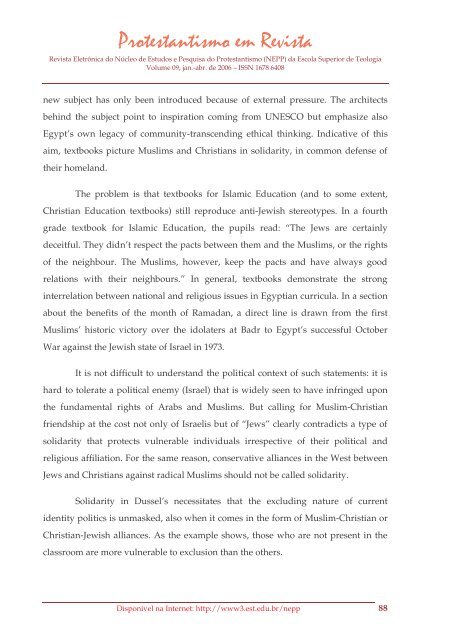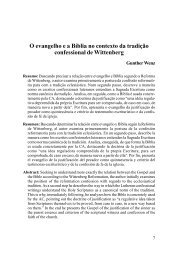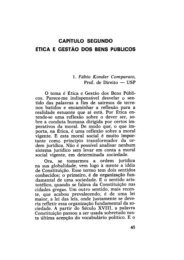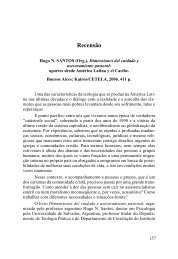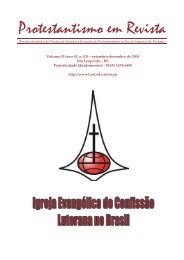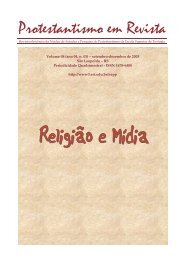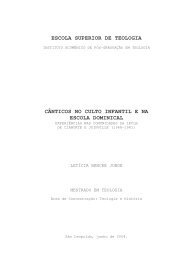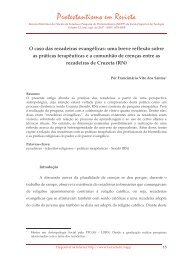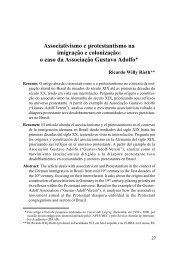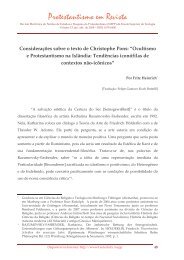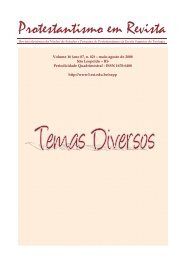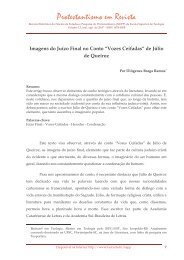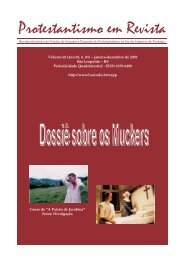Protestantismo em Revista, volume 09 (Ano 05, n.1) - Faculdades EST
Protestantismo em Revista, volume 09 (Ano 05, n.1) - Faculdades EST
Protestantismo em Revista, volume 09 (Ano 05, n.1) - Faculdades EST
Create successful ePaper yourself
Turn your PDF publications into a flip-book with our unique Google optimized e-Paper software.
<strong>Revista</strong> Eletrônica do Núcleo de Estudos e Pesquisa do <strong>Protestantismo</strong> (NEPP) da Escola Superior de TeologiaVolume <strong>09</strong>, jan.-abr. de 2006 – ISSN 1678 6408new subject has only been introduced because of external pressure. The architectsbehind the subject point to inspiration coming from UNESCO but <strong>em</strong>phasize alsoEgypt’s own legacy of community-transcending ethical thinking. Indicative of thisaim, textbooks picture Muslims and Christians in solidarity, in common defense oftheir homeland.The probl<strong>em</strong> is that textbooks for Islamic Education (and to some extent,Christian Education textbooks) still reproduce anti-Jewish stereotypes. In a fourthgrade textbook for Islamic Education, the pupils read: “The Jews are certainlydeceitful. They didn’t respect the pacts between th<strong>em</strong> and the Muslims, or the rightsof the neighbour. The Muslims, however, keep the pacts and have always goodrelations with their neighbours.” In general, textbooks d<strong>em</strong>onstrate the stronginterrelation between national and religious issues in Egyptian curricula. In a sectionabout the benefits of the month of Ramadan, a direct line is drawn from the firstMuslims’ historic victory over the idolaters at Badr to Egypt’s successful OctoberWar against the Jewish state of Israel in 1973.It is not difficult to understand the political context of such stat<strong>em</strong>ents: it ishard to tolerate a political en<strong>em</strong>y (Israel) that is widely seen to have infringed uponthe fundamental rights of Arabs and Muslims. But calling for Muslim-Christianfriendship at the cost not only of Israelis but of “Jews” clearly contradicts a type ofsolidarity that protects vulnerable individuals irrespective of their political andreligious affiliation. For the same reason, conservative alliances in the West betweenJews and Christians against radical Muslims should not be called solidarity.Solidarity in Dussel’s necessitates that the excluding nature of currentidentity politics is unmasked, also when it comes in the form of Muslim-Christian orChristian-Jewish alliances. As the example shows, those who are not present in theclassroom are more vulnerable to exclusion than the others.Disponível na Internet: http://www3.est.edu.br/nepp 88


